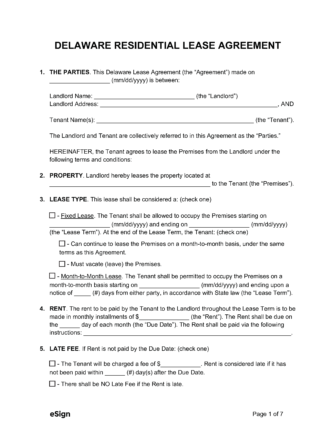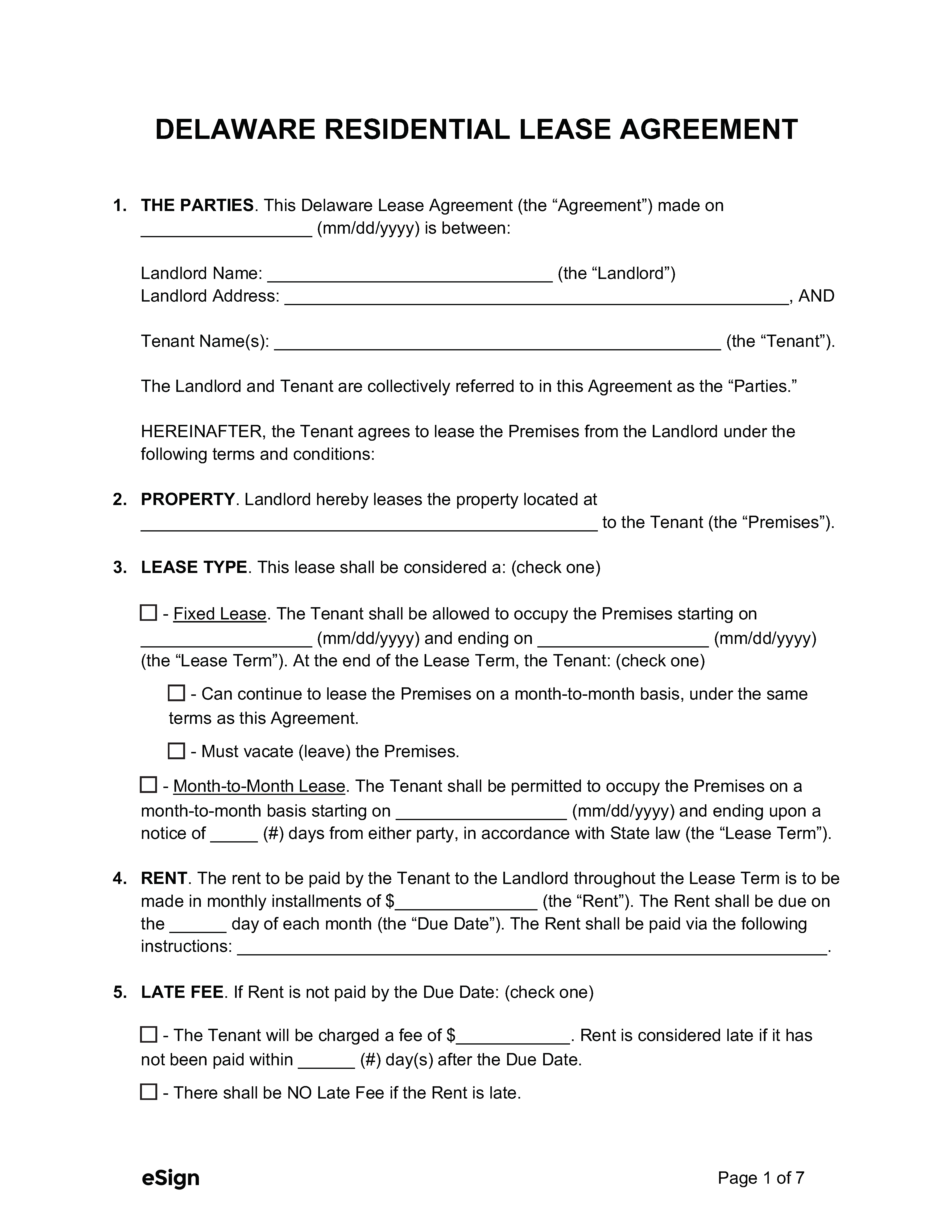Lease Agreements: By Type (6)
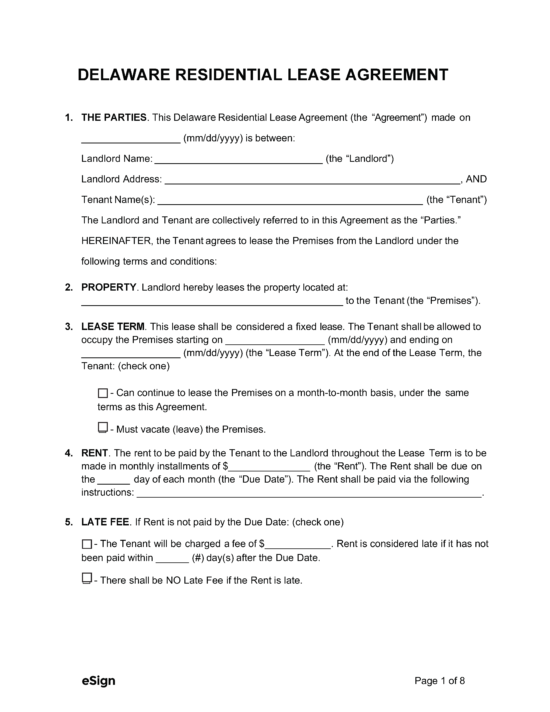 Standard (1-Year) Lease Agreement – Landlords can use this agreement to rent residential property to tenants for a pre-determined period (usually one year). Standard (1-Year) Lease Agreement – Landlords can use this agreement to rent residential property to tenants for a pre-determined period (usually one year).
Download: PDF, Word (.docx), OpenDocument |
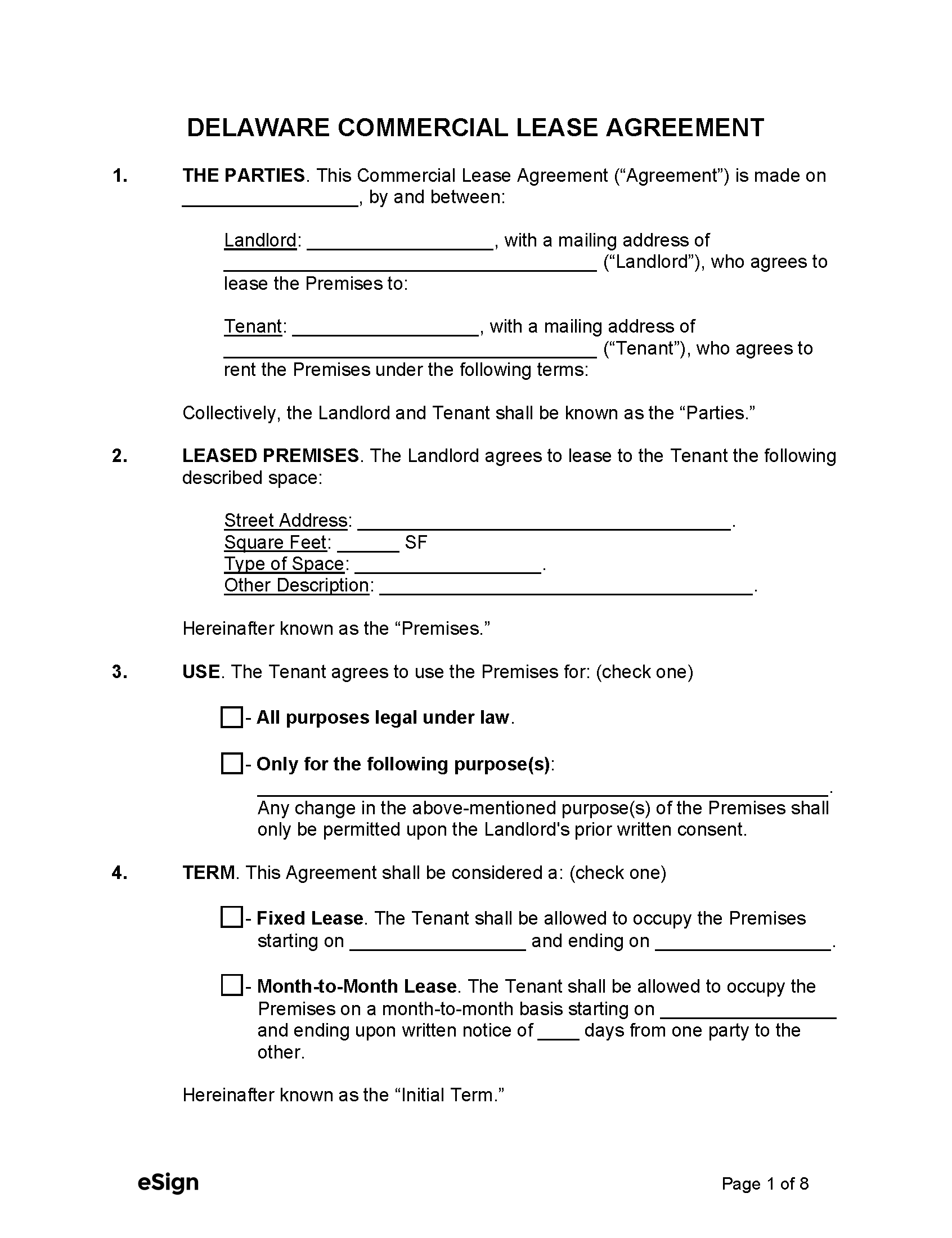 Commercial Lease Agreement – Used by landlords to lease non-residential property (e.g., offices, warehouses) to an individual or business entity. Commercial Lease Agreement – Used by landlords to lease non-residential property (e.g., offices, warehouses) to an individual or business entity.
Download: PDF, Word (.docx), OpenDocument |
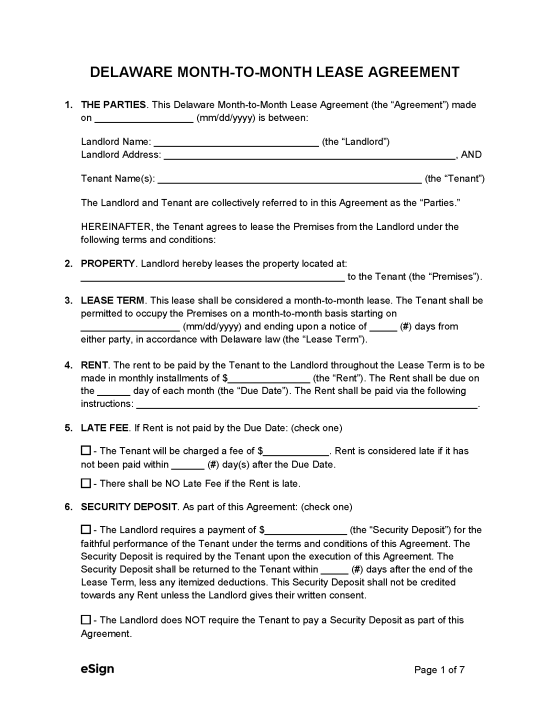 Month-to-Month Lease Agreement – A residential lease with no pre-determined expiration date that automatically renews at the beginning of each month. Month-to-Month Lease Agreement – A residential lease with no pre-determined expiration date that automatically renews at the beginning of each month.
Download: PDF, Word (.docx), OpenDocument |
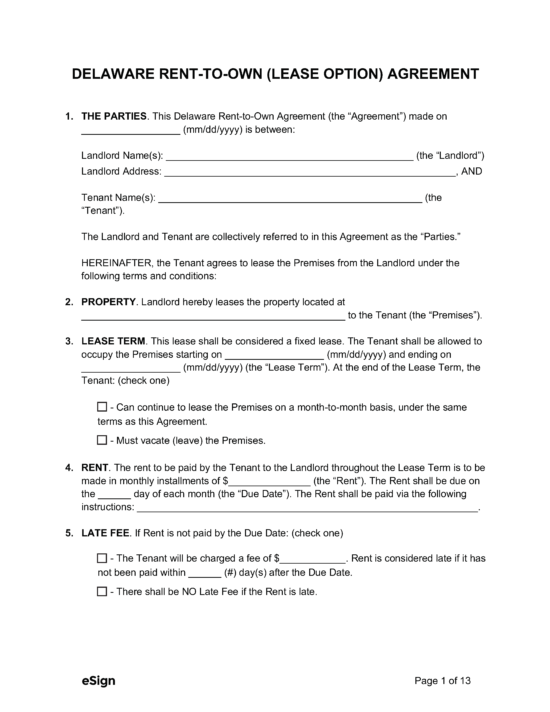 Rent-to-Own Agreement (Lease Option) – This rental contract gives tenants the option to buy the landlord’s property under the terms outlined in the agreement. Rent-to-Own Agreement (Lease Option) – This rental contract gives tenants the option to buy the landlord’s property under the terms outlined in the agreement.
Download: PDF, Word (.docx), OpenDocument |
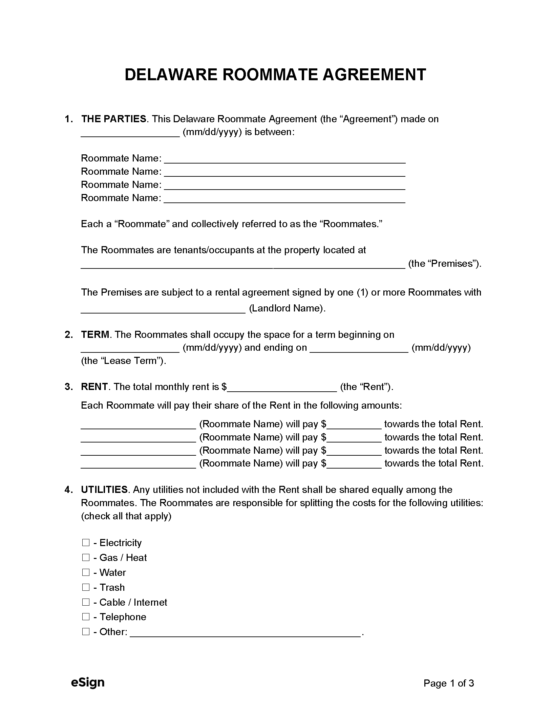 Roommate Agreement – Used by roommates to set the terms of co-tenancy, such as quiet times, cleaning responsibilities, and each person’s rent payment. Roommate Agreement – Used by roommates to set the terms of co-tenancy, such as quiet times, cleaning responsibilities, and each person’s rent payment.
Download: PDF, Word (.docx), OpenDocument |
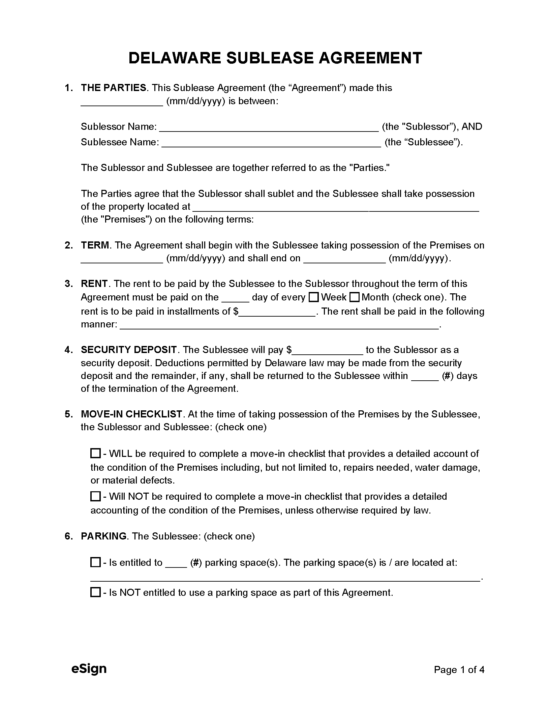 Sublease Agreement – With the landlord’s permission, tenants can use this agreement to rent out their living space to a subtenant. Sublease Agreement – With the landlord’s permission, tenants can use this agreement to rent out their living space to a subtenant.
Download: PDF, Word (.docx), OpenDocument |
Required Disclosures (4)
- Landlord-Tenant Code (PDF) – A summary of the Delaware residential landlord-tenant code must be provided to the tenant before entering into a residential lease agreement.[1]
- Lead-Based Paint Disclosure (PDF) – If leasing property built before 1978, the landlord must reveal whether lead-based paint still exists on the premises.[2]
- Owner/Landlord Disclosure – Tenants must be given the contact information of all owners, agents, and landlords.[3]
- Right to Representation (PDF) – Landlords must provide informational materials that notify low-income tenants of their right to obtain free legal representation.[4]
Security Deposits
Maximum Amount ($) – For leases of one year or more, the maximum security deposit amount is one month’s rent if the property is unfurnished. However, there’s no security deposit limit for furnished units.[5]
- Pet Deposit – An additional deposit of up to one month’s rent can be charged if the tenant has a pet.[6]
Collecting Interest – Delaware has no laws that require landlords to pay tenants the interest they’ve earned while holding a security deposit.
Returning to Tenant – Security deposits must be returned by the landlord within 20 days of the end of the lease term.[7]
Itemized List Required? – Yes, if deductions are made to the deposit, an itemized list of the damages and expected repair costs must be given to the tenant when the landlord refunds their deposit.[8]
Separate Bank Account? – Yes, a separate bank account is required to hold the security deposit.[9]
Landlord’s Entry
General Access – At least 48 hours’ notice must be given to tenants before a landlord can access the property.[10]
Immediate Access – Landlords have the right to enter the property in an emergency without providing notice to the tenants.[11]
Rent Payments
Grace Period – Tenants have five days to pay rent before late fees apply. If the landlord’s office is not in the same county as the rental property, they must wait three more days before charging late fees.[12]
Maximum Late Fee ($) – A late payment fee cannot exceed 5% of the monthly rent.[13]
Bad Check (NSF) Fee – A $40 fee may be charged to the tenant for writing a bad check.[14]
Withholding Rent – If the landlord fails to supply services required by law for more than 48 hours after receiving notice, the tenant can keep two-thirds of their rent, divided proportionally for each day the problem exists.[15]
- Repair and Deduct – When a tenant requests repairs, the landlord must start fixing the problem within 10 days or finish the repairs within 30 days. If the landlord fails to do so, the tenant can perform the repairs themselves and deduct either a half month’s rent or $400, whichever is less.[16]
Breaking a Lease
Non-Payment of Rent – Landlords must give tenants a 5-day notice once the rent payment is overdue.[17]
Non-Compliance – A 7-day notice must be sent to the tenant if they’ve committed a correctable lease violation.[18]
Lockouts – Preventing a tenant from gaining access to their rental unit is only allowed with a court order.[19]
Leaving Before the End Date – If a tenant decides to move out before the lease naturally expires, the landlord must try to re-rent the property to someone else. The tenant will be responsible for paying rent until the lease term ends or the landlord fills the vacancy.[20]
Lease Termination
Month-to-Month Tenancy – A month-to-month lease agreement can be terminated with a 60-day notice to quit.[21]
Unclaimed Property – When an evicted tenant leaves personal items in a rental unit, the landlord must store the property for seven days at the tenant’s expense. Failure to retrieve the belongings and cover the storage fees within this time frame will result in the property being deemed abandoned.[22]
